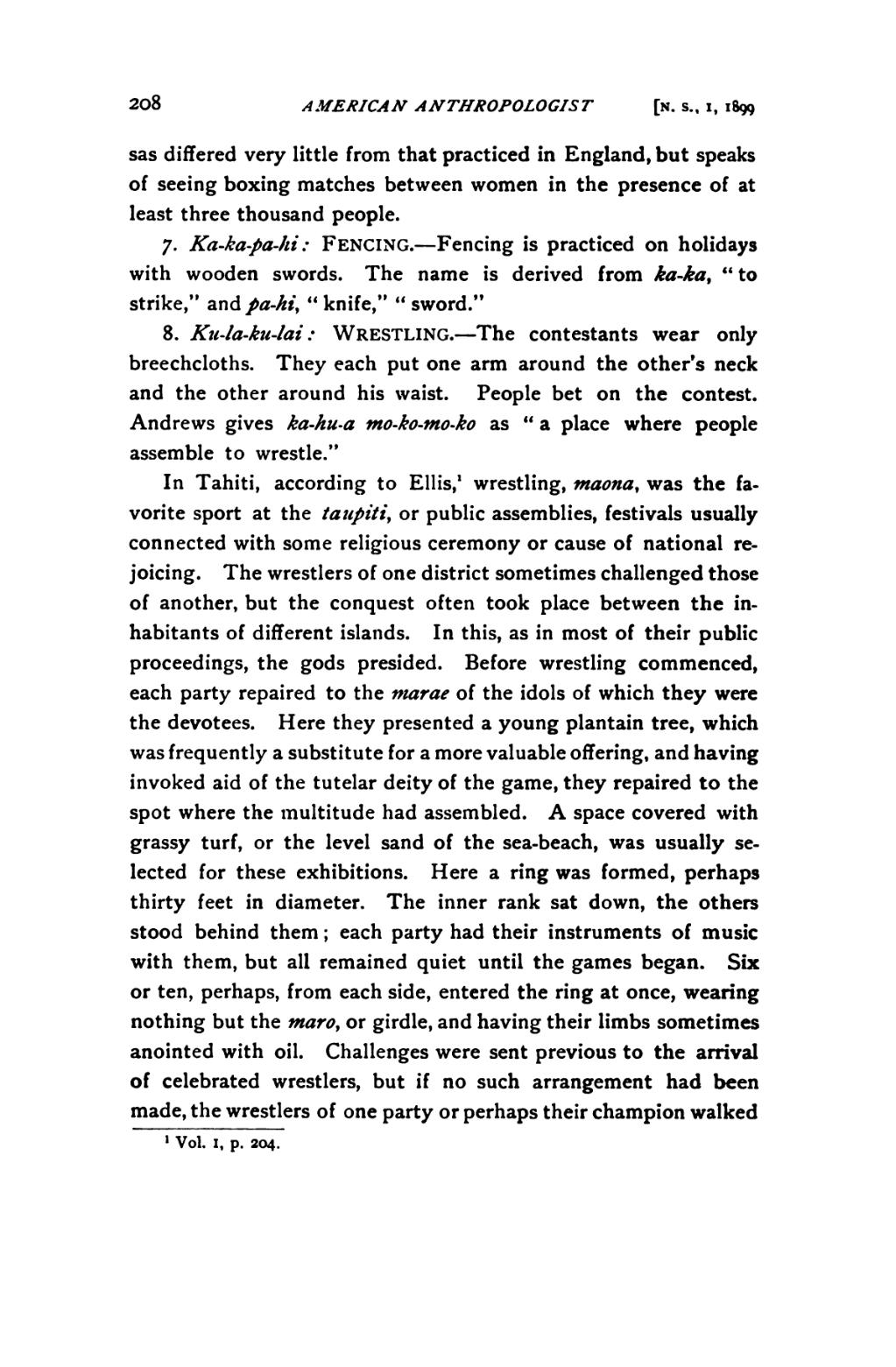208 AMERICAN ANTHROPOLOGIST [n. s., i, 1899
sas differed very little from that practiced in England, but speaks of seeing boxing matches between women in the presence of at least three thousand people.
7. Ka-ka-pa-hi: Fencing. — Fencing is practiced on holidays with wooden swords. The name is derived from ka-ka t " to strike," and paJki, " knife," " sword."
8. Ku4a-ku-lai : Wrestling. — The contestants wear only breechcloths. They each put one arm around the other's neck and the other around his waist. People bet on the contest. Andrews gives ka-hu-a mo-ko~mo-ko as " a place where people assemble to wrestle."
In Tahiti, according to Ellis, 1 wrestling, maona, was the fa- vorite sport at the tanpiti^ or public assemblies, festivals usually connected with some religious ceremony or cause of national re- joicing. The wrestlers of one district sometimes challenged those of another, but the conquest often took place between the in- habitants of different islands. In this, as in most of their public proceedings, the gods presided. Before wrestling commenced, each party repaired to the marae of the idols of which they were the devotees. Here they presented a young plantain tree, which was frequently a substitute for a more valuable offering, and having invoked aid of the tutelar deity of the game, they repaired to the spot where the multitude had assembled. A space covered with grassy turf, or the level sand of the sea-beach, was usually se- lected for these exhibitions. Here a ring was formed, perhaps thirty feet in diameter. The inner rank sat down, the others stood behind them ; each party had their instruments of music with them, but all remained quiet until the games began. Six or ten, perhaps, from each side, entered the ring at once, wearing nothing but the maro, or girdle, and having their limbs sometimes anointed with oil. Challenges were sent previous to the arrival of celebrated wrestlers, but if no such arrangement had been made, the wrestlers of one party or perhaps their champion walked
1 Vol. 1, p. 204.
�� �
